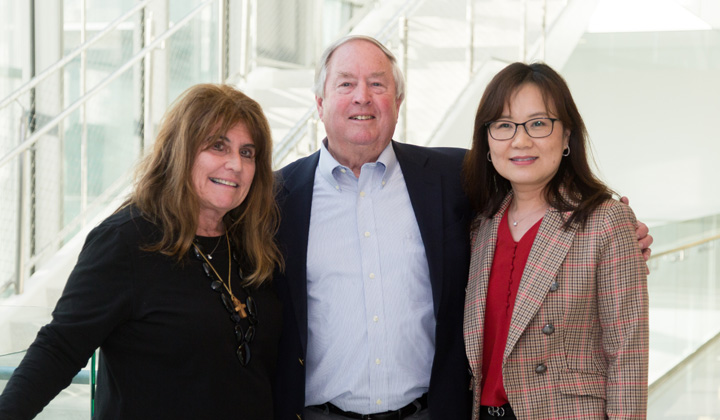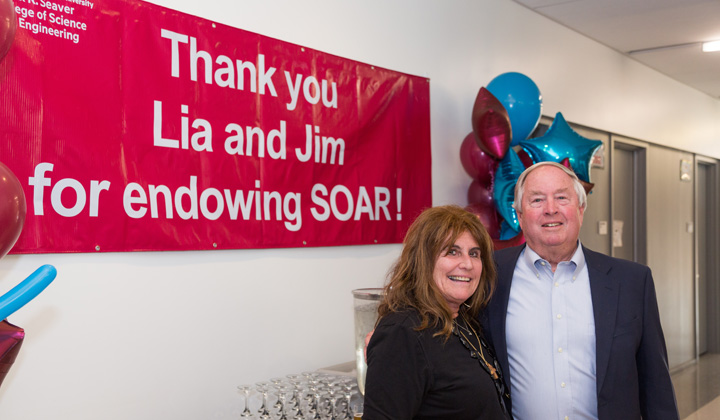The Future of Science
$1 million gift to the Summer Opportunities for Advanced Research (SOAR) provides opportunities for science and engineering students

While in high school, LMU Trustee Jim Whitehead ’65 and Angela Tun ’20 were each interested in science and discovery when they were invited to participate in research programs. Jim had an opportunity to study cardiology before attending Loyola; Angela was invited to conduct Type 2 diabetes research alongside Ph.D. students in New York. The difference between them: Jim’s opportunity was never realized. The cardiology research program was unpaid and he had to earn money to go to school.
Fifty-nine years later, Jim and his wife Lia have contributed to the SOAR program – Summer Opportunities for Advanced Research – with a gift of $1 million to the LMU Frank R. Seaver College of Science and Engineering. The SOAR program allows undergraduate students to participate in a six-week, faculty-mentored, hands-on research project that enhances their academic experience.
The program was launched in 2016 thanks to a $500,000 gift given by the Drollinger Family Charitable Foundation and then-LMU Trustee Karen Dial. Dial, president of Drollinger Properties and president of the Drollinger Family Charitable Foundation, had the vision to understand that intensive summer research could change a student’s educational trajectory.

For Angela, summer research meant she could continue her passion of studying Type 2 diabetes, which she has done at LMU alongside David Moffet, Ph.D., professor of chemistry and biochemistry. Their research was published in the Journal of Peptide Science with Angela listed as a co-author.
“I chose to come to LMU because it promotes community,” said Angela. “During a site visit to LMU, I saw the small class sizes and the professors who are invested in our learning and in teaching us, combined with the fact that I would actually get to do the research and have the potential to be a published co-author. That really sets LMU, and the students, apart. When I graduate, I’ll have more research experience and certain skill sets that someone at a large university may not have.”
Endowing the SOAR program was a continuation of Jim’s passion for instilling the love of science in young people. “When I had a biotech business, I always felt it was important to put something back into society, so I started a program called the Young Investigator Award that gave travel grants to young investigators. In reflecting about that award and the summer research program that I wasn’t able to participate in at UCLA, it became important to me to fund something like the SOAR program to help future scientists.”
Angela met Jim at her poster presentation on Type 2 diabetes. “Jim is a highly intelligent guy, so when we did our poster presentation, he would immediately ask the next question,” Angela said. “He knows the material so well that he understood our research at a level that many people wouldn’t, and that was really special. It made the presentation really valuable, because we could see that he was a scientist giving back to the science community.”
Learn more about the Seaver College’s SOAR program.
To support the SOAR program and our Seaver College of Science and Engineering students, please click here.